Back to series
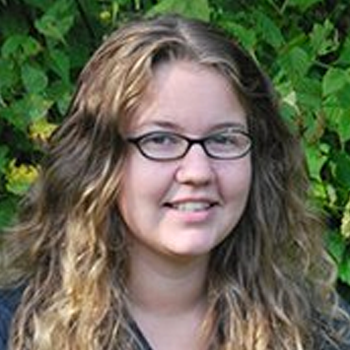

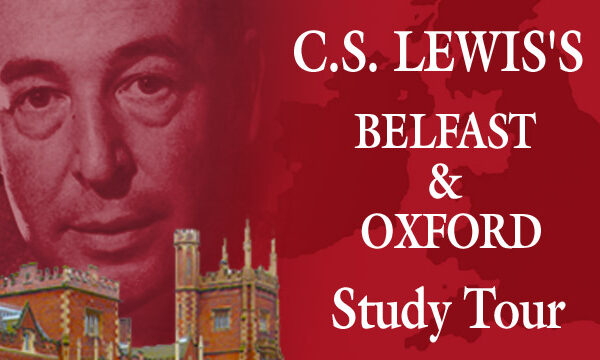
How I Lost My Boyfriend
Click here to open a Print - Friendly PDF
| Committed, adj. Feeling dedication and loyalty to a cause, activity, or job; wholeheartedly dedicated. Christian, noun. A person who has received Christian baptism or is a believer in Jesus Christ and his testimony. In July I will be moving to Southeast Asia to teach for two years as a member of a partnering organization with the C.S. Lewis Institute (CSLI). (This article is intentionally not naming the organization.) I was first introduced to this group in October of last year, when I had been a Year One Fellow in the C.S. Lewis Institute–Annapolis Fellows Program for a mere four months.This partnering organization has existed for more than thirty years, sending faithful Christian educators and teachers into places like China, Mongolia, and Southeast Asia to teach in university and secondary settings. It focuses on excellence in teaching, learning the host language and culture, intentionality in building relationships in and out of the classroom, and walking the walk together in community. They offer a variety of programs for people in various situations: current college students, recent graduates, and working professionals. The program I am a part of is geared toward working professionals and requires a minimum two-year commitment. During the application process to become a teacher in Asia, I did not think much about how my work as a Fellow would impact or inform my future work with them. Now, at the end of Year One, I understand that everything I’ve done with CSLI has direct bearing on what lies ahead. This partnering organization requires two things of all applicants. The first requirement was easy for me to document. I needed a bachelor of science or bachelor of arts in any field of study. I graduated from St. John’s College with a BA in liberal arts back in 2010, and I have the diploma to prove it. However, as I walked through the admissions process for the program (and a long and arduous process it was!) last November, I was asked all sorts of probing personal questions about my behavior, relationships, beliefs, skills, assets, and defects, both past and present. This was, I gather, necessary to assess my eligibility for the second requirement of their teachers: committed Christian.
And though this paints an extreme portrait, we all fall short on our commitment to Christ at some point. There comes a time when we say, “But haven’t I done enough?” or when our feelings get hurt because we don’t believe God is treating us fairly, losing sight of the big picture where God has already taken care of all our needs, including the biggest one. Commitment implies a willingness to press forward in spite of the trials and tribulations of life. And, perhaps even more condemning, commitment implies a willingness to press forward in spite of all blessings. Comfort can be the enemy of the committed Christian, and our comfort is precisely what the Fellows Program invites us to examine. When I began as a Year One Fellow last June, I had a boyfriend, a cat, the most beautiful apartment in Annapolis, and a good job with a decent salary and excellent benefits. My life was the essence of comfort, and yet my heart was not satisfied. I gave back to the community, spent time volunteering in a correctional facility, volunteered on Sundays, and mentored a few younger girls, but my heart was still seeking something that no amount of good deeds would be able to provide. I wanted a deeper relationship with God. I just didn’t know what that would look like, or how to make it happen. I applied for the Fellows Program at the continued encouragement of several friends who had previously participated in both Year One and Year Two. Though I had been aware of the program for a few years, when the application became available online last March, I applied immediately and was accepted into the program with a group of nineteen others from Annapolis and the surrounding area (and a couple of people living as far away as Delaware and New Jersey!). The summer set the stage for what was to come—by throwing me into some of the heaviest reading, quantitatively speaking, of the entire program. My priorities had to shift to make room for the homework that was being assigned to me. Each month we studied a different topic. As I examined the fatherhood of God and God’s grace, my spirit became refreshed and filled. Though the program can be demanding (particularly in those first few months), I tackled the assignments with hunger and with joy. I desired to understand more of this God whom I professed to serve. And as I began to understand the Spirit better, and to see my right relationship to the Father more clearly, my love for the Son grew. Loving Him more, I sought to follow Him more intentionally, that I might not be swayed in my path by the distractions of a comfortable life.
I am more comfortable pressing on in a conversation, whereas before I might have let it drift to a less polarizing topic. I am not afraid to ask a question or two, and I’m not even afraid to answer a few myself. Studying the material in the Fellows Program has trained me with both the facts and figures and the attitudes and approaches I can use in everyday conversation. This year I had my first prolonged experiences with many Christian disciplines: fasting, financial giving, generous living, daily prayer, meditation on the Word, cultivating silence and solitude. I identified my greatest gift of the Spirit (faith) and my weakest (generosity). Through fellowship with my small group, my mentor, and the cohort of Annapolis Fellows as a whole, I was able to see many gifts in practice. Charity, generosity, humility—I have seen these gifts lived out, and my own desire and ability to practice them myself has increased. The best testimony I have to offer is the way in which I live, not anything I say. I knew how to live, but because of their singular focus on following Christ, CSLI showed me how to live better.
My year as a Fellow is drawing to a close, and I no longer have the boyfriend, the cat, or the beautiful apartment, and I am preparing to leave the cushy job to move into the unknown. And yet I am not afraid. My studies, along with the practice of discipline this year, have increased my confidence in the only One who truly matters, both in what He has already done, and what He has promised for the future. In this confidence, I walk without fear in obedience, and it is in obedience that my heart swells with love for Him. I have found what I was seeking so urgently last year, and though my path is taking me halfway across the planet, mine is only one of many stories of lives that have been changed by CSLI. My story as a Fellow is a radical one, but no more than any others. I do not believe you can fully participate as a Fellow and not be changed. The C.S. Lewis Institute is fundamentally based around bringing working professionals into a deeper relationship with Christ, that they might love Him more deeply and share His love with others. And anytime we, as seekers, encounter our Lord, we must walk away transformed. Whatever challenges arise over the course of the next two years, I believe this year of work with CSLI has solidified the groundwork that was already laid for me two thousand years ago on a tree on a hill. As I walk forward, I am confident in only One, and He is enough to give me the strength and the courage to follow Him, wherever He goes, and to encourage others to join me, wherever they may be. |
|||

Alexandria H.
TeacherAlexandria H., Teacher, was raised in Central New York, but has spent the better part of the last decade in and around Annapolis, Maryland. She graduated from St. John’s College in 2010 and had been working for the Admissions Office at her alma mater until a few months ago when she took a two-year commitment to serve as an English teacher overseas. She studied as a CSLI Year One Fellow in Annapolis during the 2013-2014 program. Favorite authors (program and non-program) include Augustine, Bonhoeffer, Keller, Lobachevsky and most Russian novelists of the nineteenth century. Alexandria is now serving Jesus in Southeast Asia.

Recommended Reading:
Today’s Tentmakers: Self-support: An Alternative Model for Worldwide Witness by J. Christy Wilson, Jr., Publisher: Wipf & Stock Pub (February 25, 2002)
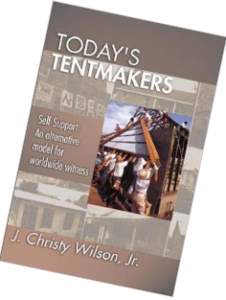 One million American Christians live and work abroad. They are not missionaries. These people are students, administrators, engineers, teachers, and doctors in other countries. They could be called “tentmakers”. Just as the Apostle Paul used his vocation, tentmaking, to finance his witness to the churches, so today’s tentmakers support themselves with their own hands and minds, shining the light of Christ around them. “We err,” suggests author J. Christy Wilson, Jr., “when we assign personal evangelism at home to the lay Christian but missions work abroad only to the specialist.” Tentmaking is available to everyone.
One million American Christians live and work abroad. They are not missionaries. These people are students, administrators, engineers, teachers, and doctors in other countries. They could be called “tentmakers”. Just as the Apostle Paul used his vocation, tentmaking, to finance his witness to the churches, so today’s tentmakers support themselves with their own hands and minds, shining the light of Christ around them. “We err,” suggests author J. Christy Wilson, Jr., “when we assign personal evangelism at home to the lay Christian but missions work abroad only to the specialist.” Tentmaking is available to everyone.
Today’s Tentmakers is a handbook which is of value not only to the prospective tentmaker, but also to the Christian planning to travel overseas. You’ll discover here information about foreign travel and employment, support organizations, language training, moving, cultural adjustment, and politics. Whether you are a student or teacher, housewife or doctor, Today’s Tentmakers is an opportunity of adventure and service in God’s work.
 COPYRIGHT: This publication is published by C.S. Lewis Institute; 8001 Braddock Road, Suite 301; Springfield, VA 22151. Portions of the publication may be reproduced for noncommercial, local church or ministry use without prior permission. Electronic copies of the PDF files may be duplicated and transmitted via e-mail for personal and church use. Articles may not be modified without prior written permission of the Institute. For questions, contact the Institute: 703.914.5602 or email us.
COPYRIGHT: This publication is published by C.S. Lewis Institute; 8001 Braddock Road, Suite 301; Springfield, VA 22151. Portions of the publication may be reproduced for noncommercial, local church or ministry use without prior permission. Electronic copies of the PDF files may be duplicated and transmitted via e-mail for personal and church use. Articles may not be modified without prior written permission of the Institute. For questions, contact the Institute: 703.914.5602 or email us.
-
Recent Podcasts
The Side B Stories – Dr. James Tour’s story
by Jana Harmon, James Tour on April 12, 2024From a secular Jewish home, scientific scholar and...Read More
-
Why are Christians so Bad?
by Paul Joen on April 5, 2024
-
Questions That Matter Podcast – Dai Hankey and Gospel Hope for Weary Souls
by Randy Newman, Dai Hankey on April 5, 2024
-
Recent Publications
Isn’t Morality Relative?
by Christopher L. Reese on April 1, 2024It is widely accepted in the Western world...Read More
-
Do Muslims and Christians Worship the Same God?
by Andy Bannister on March 1, 2024
-
Artificial Intelligence and Its Impacts on Humanity
by John Lennox on February 13, 2024
0
All Booked
0.00
All Booked
0.00
All Booked
20599
GLOBAL EVENT: 2024 Study Tour of C.S. Lewis’s Belfast & Oxford
https://www.cslewisinstitute.org/?event=global-event-2023-study-tour-of-c-s-lewis-belfast-oxford-2&event_date=2024-06-22®=1
https://www.paypal.com/cgi-bin/webscr
2024-06-22

Next coming event
Days
Hours
Minutes
Seconds
GLOBAL EVENT: 2024 Study Tour of C.S. Lewis’s Belfast & Oxford
On June 22, 2024 at 12:00 pmat Belfast, Northern Ireland & Oxford, EnglandTags
Speakers
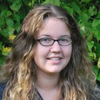
Alexandria H.
Teacher
Team Members

Alexandria H.
TeacherAlexandria H., Teacher, was raised in Central New York, but has spent the better part of the last decade in and around Annapolis, Maryland. She graduated from St. John’s College in 2010 and had been working for the Admissions Office at her alma mater until a few months ago when she took a two-year commitment to serve as an English teacher overseas. She studied as a CSLI Year One Fellow in Annapolis during the 2013-2014 program. Favorite authors (program and non-program) include Augustine, Bonhoeffer, Keller, Lobachevsky and most Russian novelists of the nineteenth century. Alexandria is now serving Jesus in Southeast Asia.



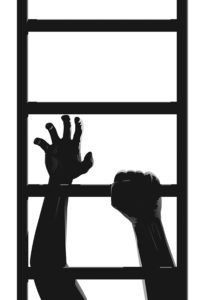 Why the emphasis on “committed”? Why not simply require all applicants to be Christian? The title Christian ought to imply commitment. Denying oneself and picking up one’s cross to follow Him requires nothing less than dedication and loyalty. Unfortunately though, there are many places where this is not the case, where being a Christian is a social pleasantry, relegated to Sundays, where we do for God that He might do for us, critique the service based on entertainment value, and volunteer to help out of a sense of social responsibility, not recognizing the sin so inherent in this attitude.
Why the emphasis on “committed”? Why not simply require all applicants to be Christian? The title Christian ought to imply commitment. Denying oneself and picking up one’s cross to follow Him requires nothing less than dedication and loyalty. Unfortunately though, there are many places where this is not the case, where being a Christian is a social pleasantry, relegated to Sundays, where we do for God that He might do for us, critique the service based on entertainment value, and volunteer to help out of a sense of social responsibility, not recognizing the sin so inherent in this attitude. It wasn’t just comfort with my possessions and surroundings that needed to be scrutinized. I had to examine some of the beliefs and attitudes that drove my outlook and actions in life. My desire for privacy was challenged. I am not a secretive person, but I was raised by atheists. I had learned from experience that topics like religion did not make for polite conversation. Although you still won’t find me on a street corner hollering about the next life—the hereafter—I now make a point to pay closer attention to the underlying assumptions inherent in the worldview espoused by those around me.
It wasn’t just comfort with my possessions and surroundings that needed to be scrutinized. I had to examine some of the beliefs and attitudes that drove my outlook and actions in life. My desire for privacy was challenged. I am not a secretive person, but I was raised by atheists. I had learned from experience that topics like religion did not make for polite conversation. Although you still won’t find me on a street corner hollering about the next life—the hereafter—I now make a point to pay closer attention to the underlying assumptions inherent in the worldview espoused by those around me.

